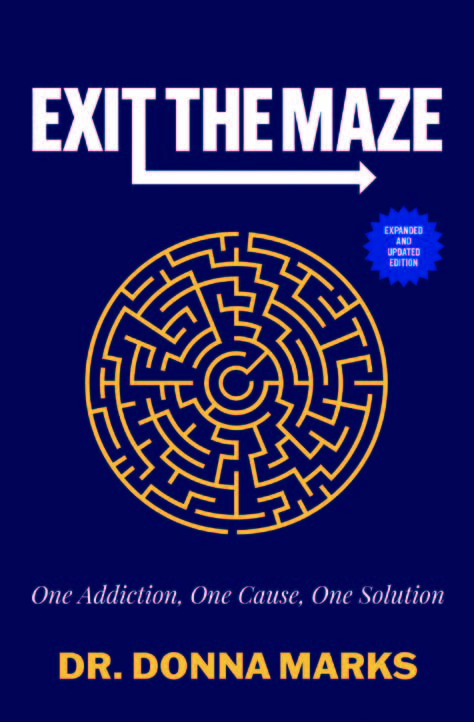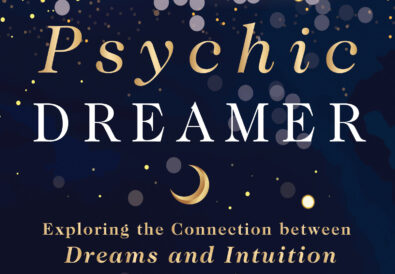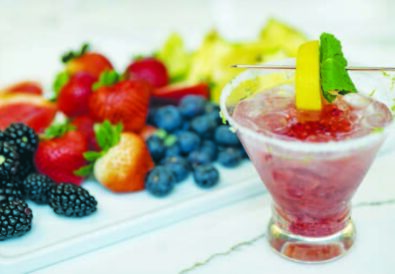We’ve become so desensitized to addiction (repeating the same behavior despite negative consequences) that by the time it’s diagnosed, it’s often too late. Between misunderstanding this disease and inadequate treatment models, very few people stay sober and far too many die. I was almost one of those fatalities.
As a little girl, watching addicts was perfectly normal. Incessant cigarette smoking, drinking to oblivion, eating to obesity, and personality changes was standard. Television ads promised relief from every ailment; beautiful people holding cigarettes alongside a sparkling stream, mouth-watering chocolate bars and gooey pizzas, dazzling cars, bubbling champagne, magic pills, and more—promising a happier, sexier life. Eventually, I needed relief from the constant gnawing pain and inferior feelings that loomed wherever I went. At age 12, the first hit of nicotine started my journey into the addiction maze, then the high from that first kiss with a boy. It took a lifetime of learning, growing, and a relapse before I disentangled from the tentacles of this insidious disease deeply embedded in my mind.
Addiction is our number one global crisis, and the sooner we get out of denial, millions of lives will be saved. Almost all medical illnesses (heart attack, stroke, cancer, Diabetes II, lung diseases, overdose, and suicide) are directly related to the abuse of alcohol, drugs, sugar, and trans fats. (COVID fatalities are highest with these comorbidities). So, how do we treat these illnesses? With pills. doctors address “bad habits” and use words like “cut down” or “modify,” then prescribe.
Mental illness has reached a worldwide crisis and is accelerating because of addiction. Children raised in families with addiction are bound to suffer emotional issues. Social media and video gaming addiction, sugar-laden diets, and increased psychiatric drug use have all festered addiction and poor mental health.
Most things that people get addicted to are designed with that intent. The lawsuits against tobacco companies revealed additives to make cigarettes more addictive. Narcotics like Oxycontin, made and distributed by Purdue, are so addictive and deadly that a 6-billion-dollar lawsuit had resulted. Yet this and other addictive narcotics are still available for physical pain, even for those in recovery from substance abuse. It’s time to look at all the other addictive products and what compels us to want more.
There’s a whole new world of addiction: video gaming, porn, shopping, sex, love, codependency, working, extreme exercise, thrill-seeking, online gambling, a never-ending list. And when these external fixes don’t quell the underlying void and anxieties, people often wind up in a physician’s office, walking away with other addictive drugs— benzodiazepines or antidepressants. Both are difficult to stop without painful, lasting withdrawal effects.
I first got sober in my early 30s, but unfortunately, that recovery program only addressed “substances,” not my other addictions. When I quit smoking cigarettes, I replaced that addiction with compulsive exercise. Then, it was work, romance, and even therapy and spirituality workshops. After my breast cancer surgery, I was given narcotics, despite recovering from addiction for sixteen years. I didn’t get addicted, but I made some of my life’s worst decisions while under the influence of Oxycontin.
I spent decades in therapy because my life was getting worse, not better. Some therapists didn’t understand addiction. My last therapist was sure I couldn’t be an addict, when in reality, my entire existence was untreated addiction. It took a full-blown relapse to bring me to the truth I’d searched for so long.
The answer was provided on the last night of my drinking, during an emotional meltdown and yelling at God for not loving me after all my hard work. “It’s not me that doesn’t love you. You don’t love yourself.” That moment of truth was the best medicine I’d ever had. It was the missing piece of the puzzle. Going forward was easy.
I totally reframed my concept of addiction. There’s only one. It’s an invisible hole that seeks to plug into anything that will provide a fix. I learned that every addiction is a substitute for love. I was attached to addiction instead of loving relationships. I confused the temporary feeling of high with feeling love. I realized that saying, “I love cigarettes, pizza, shopping, soda, wine, cigarettes, etc.,” actually meant, “I love the way those things make me feel.” Feeling high and feeling love is not the same.
I learned that love is an action word with three components: emotional, physical, and spiritual. Emotional love means addressing old and new emotional wounds by facing and consciously releasing pain as well as learning how to have healthy relationships. Physical love means treating my body like a sacred temple—with good nutrition, exercise, and rest. Spiritual love is connecting with something that inspires, recharges, and guides me. Then, instead of addiction draining me, self-love drained the addiction. Like any other bad relationship, I forgot all about it. I’ve used this method for the past ten years with myself and others. Abstinence isn’t enough without joy in our lives. I live on a beam of light. Whenever I’m not feeling right, I jump back on.
I’m not blaming; it’s useless. We, individually, are responsible for treasuring our lives and well-being. Now is the time to break up with addiction and replace it with love. Then, someday, addiction will be only something we used to do.
Dr. Donna Marks is the author of Exit the Maze, and has been a licensed psychotherapist and addictions counselor in Palm Beach, Florida, for over thirty years. In 1989, Dr. Marks developed a chemical dependency training program at Palm Beach Community College, which has grown into a four-year degree and received the Florida Governor’s Council Award. She is also a certified gestalt therapist, psychoanalyst, hypnotist, sex therapist, and teaches A Course in Miracles, along with sharing her methods with hundreds of thousands of listeners on podcasts and radio shows. Learn more about Dr. Marks, her books, and services at www.DrDonnaMarks.com.




















